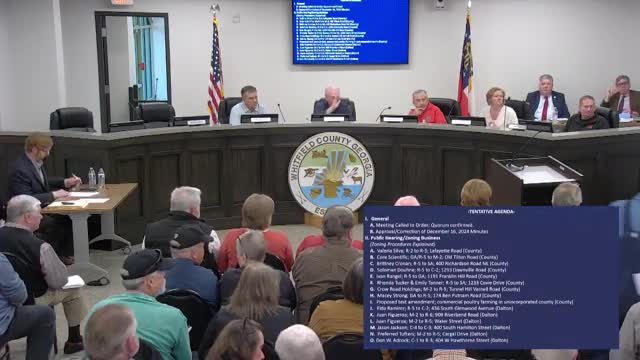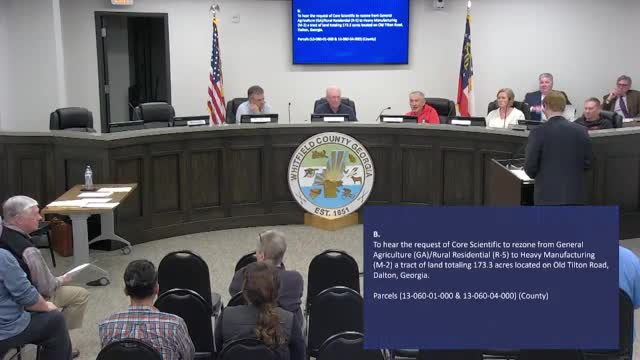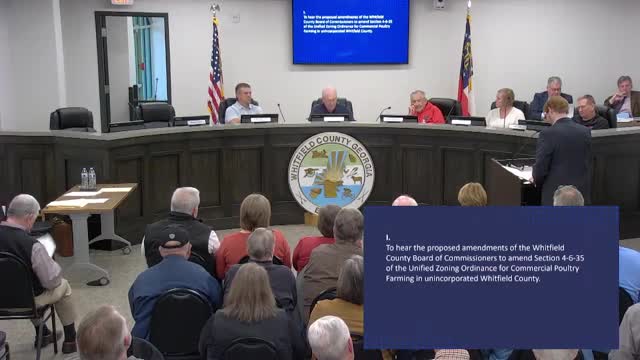Article not found
This article is no longer available. But don't worry—we've gathered other articles that discuss the same topic.

Votes at a glance: Planning commission actions on rezoning and text amendments

Core Scientific’s proposed data center at Old Tilton Road wins planning commission approval after neighbors raise noise and view concerns

